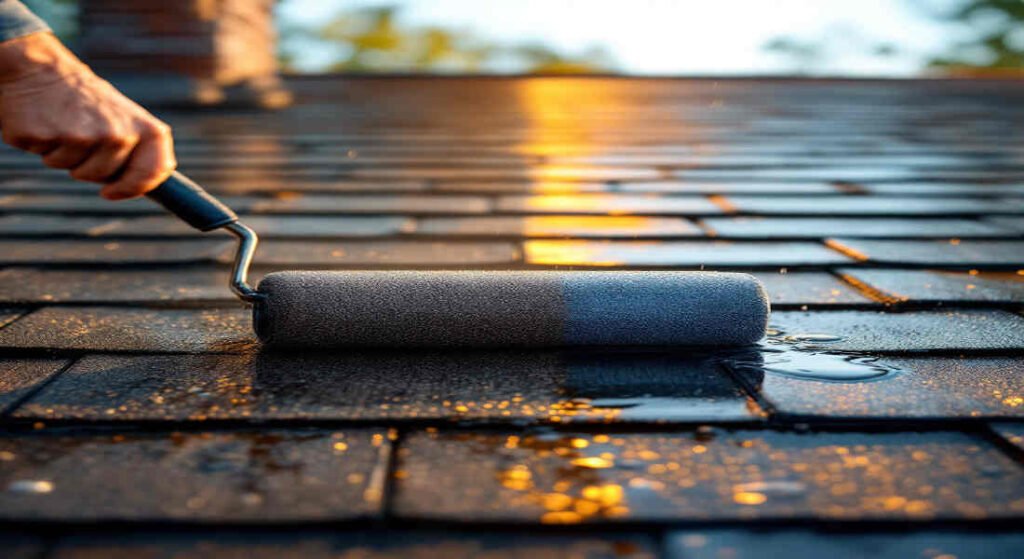When it comes to protecting your home, the roof is undeniably one of the most important components. It shields your house from rain, snow, and extreme sunlight, ensuring that everything inside remains safe and dry. But even the most durable roofs are not invincible. Over time, weather elements, wear, and aging can take a toll on your roof, leading to leaks, mold buildup, and even structural damage. This is where roof sealers come in as a game-changing solution.
Why Roof Sealers Are Essential for Longevity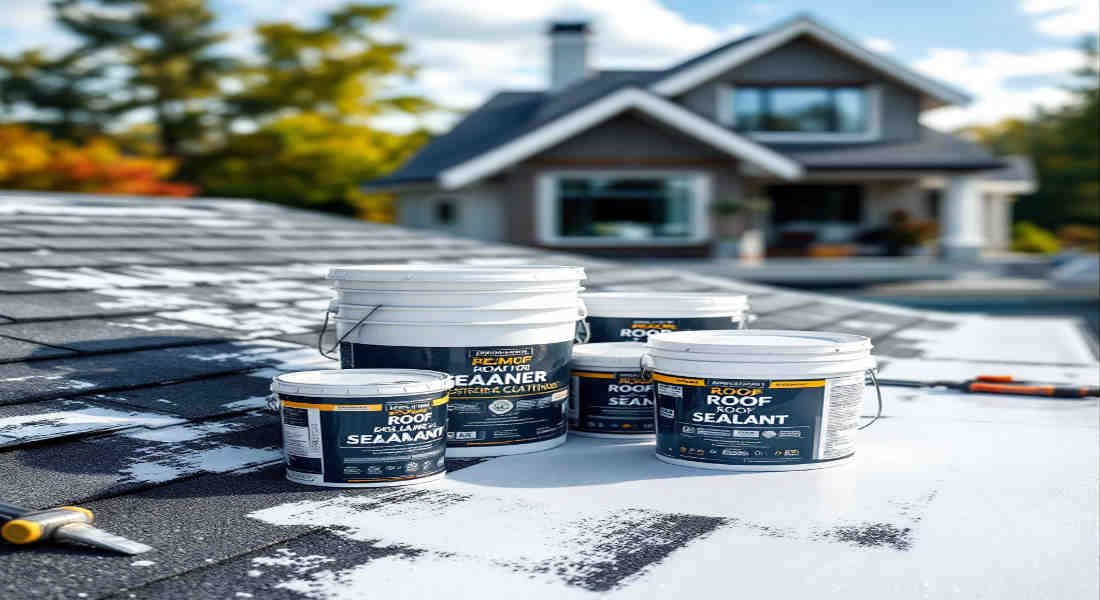
A roof sealer is a specially formulated product used to coat your roof, creating a protective barrier against moisture, UV rays, and other environmental elements. Think of it as a shield that keeps your roof healthy and extends its lifespan. Without sealing, even the sturdiest roofs can succumb to leaks, corrosion, and energy inefficiency.
The Importance of Roof Sealers
- Preventing Water Damage: Roof sealers block water from seeping into cracks, which can lead to leaks and structural damage.
- Resisting UV Rays: Constant sunlight exposure can degrade roofing materials over time. Sealers offer UV protection, reducing wear.
- Energy Efficiency: Some sealers reflect heat, ensuring your home stays cooler in summer, which can save on energy bills.
- Extending Roof Lifespan: A well-sealed roof lasts longer by reducing the impact of weathering.
By investing in the right roof sealer, you can protect your roof and save time and money in the long run.
Understanding Roof Sealers and Their Importance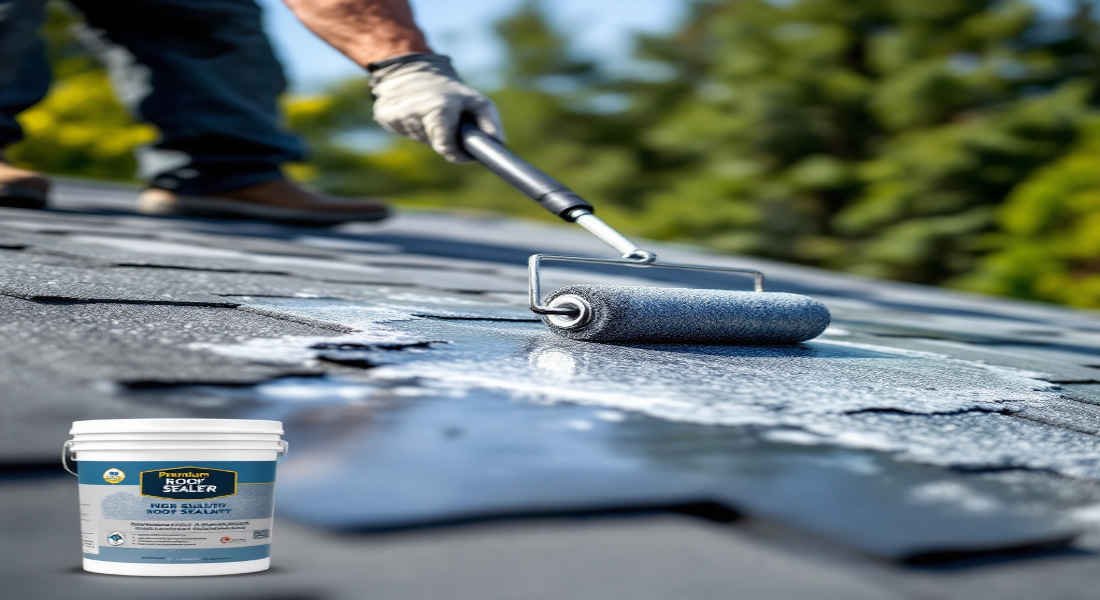
What is a Roof Sealer?
A roof sealer is a coating applied to roofing materials to create a watertight and weather-resistant surface. It acts as a protective layer against harsh elements that can deteriorate a roof over time.
You may also read (roof rule on florida homeowners).
Common Roof Problems That Sealers Can Prevent
- Leaks and Water Damage: Unsealed roofs often develop cracks or gaps where water can seep in, causing costly damage.
- Mold and Mildew Growth: Moisture trapped in roofing materials can lead to mold, which compromises structural integrity and indoor air quality.
- Energy Loss: Poor insulation caused by roof wear can result in higher heating and cooling costs.
- Structural Damage: Over time, exposure to weather without protection can weaken your roof’s framework.
Roof Sealers vs. Other Roofing Solutions
Unlike roof repairs or replacements, sealers are preventative measures. While repairs fix existing issues, sealers proactively protect your roof, helping you avoid problems in the first place. They’re also more affordable and easier to apply compared to large-scale roof renovations.
Types of Roof Sealers and Their Longevity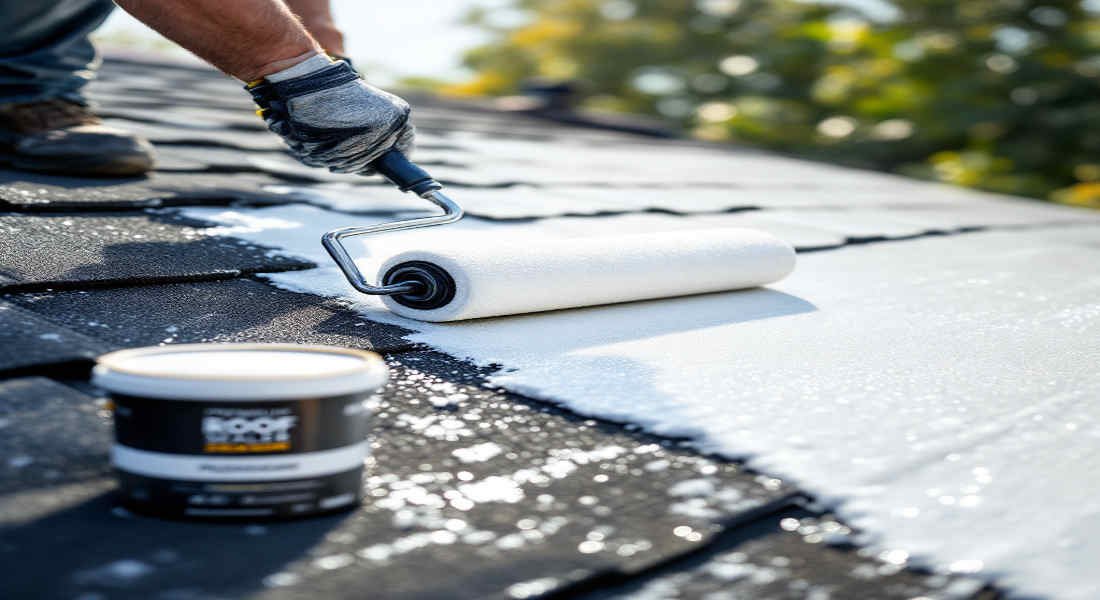
Choosing the right roof sealer depends on your roof type, climate, and specific needs. Here’s a breakdown of the most common roof sealers and their key features:
Silicone Sealants
- Durability: Extremely long-lasting and weather-resistant.
- Best For: Flat roofs or areas prone to water pooling.
- Benefits: Outstanding water resistance, flexibility, and UV resistance.
- Drawback: Higher cost compared to other options.
Acrylic Sealants
- Durability: Moderate lifespan, ideal for various climates.
- Best For: Sloped roofs in mild weather conditions.
- Benefits: Cost-effective, reflects sunlight, and has easy application.
- Drawback: Less effective in areas with heavy rain or snow.
Polyurethane Sealants
- Durability: Highly durable, even in extreme weather.
- Best For: Harsh climates with frequent temperature fluctuations.
- Benefits: Quick drying, flexible, excellent adhesion.
- Drawback: It can be more expensive than acrylic options.
Elastomeric Sealants
- Durability: Long lifespan due to their elasticity.
- Best For: Roofs requiring flexibility and waterproofing.
- Benefits: Waterproof, stretchable, and crack-resistant.
- Drawback: Requires proper preparation for effective application.
Asphalt-Based Sealants
- Durability: A traditional choice with reliable water protection.
- Best For: Asphalt and metal roofs.
- Benefits: Affordable and widely available.
- Drawback: Lower UV resistance compared to modern sealers.
Silane/Siloxane Sealants
- Durability: Excellent for slate roofs with breathable protection.
- Best For: UV and water protection on natural materials.
- Benefits: Long-lasting, prevents water penetration.
- Drawback: Limited availability.
Butyl Rubber Sealants
- Durability: Known for flexibility and long-term performance.
- Best For: Metal and rubber roofing systems.
- Benefits: Seamless application, great for expansion joints.
- Drawback: Limited compatibility with certain roof types.
You may also read (how to manage home plumbing without electricity).
Comparison Table: Roof Sealers at a Glance
Sealer Type Longevity Best For Key Benefits Drawbacks
Silicone 20-25 years Flat roofs High water and UV resistance High cost
Acrylic 10-15 years Sloped roofs Cost-effective, heat reflective Less effective in heavy rain
Polyurethane 15-20 years Harsh climates Quick drying, durable Expensive
Elastomeric 15-20 years Flexible needs Crack-resistant, waterproof Application prep required
Asphalt-Based 10-15 years Asphalt/metal roofs Affordable, reliable Low UV resistance
Silane/Siloxane 15-20 years Slate roofs Breathable, UV resistant Limited availability
Butyl Rubber 20+ years Metal/rubber roofs Flexible, durable Roof-type compatibility
Top Roof Sealers Recommended for Longevity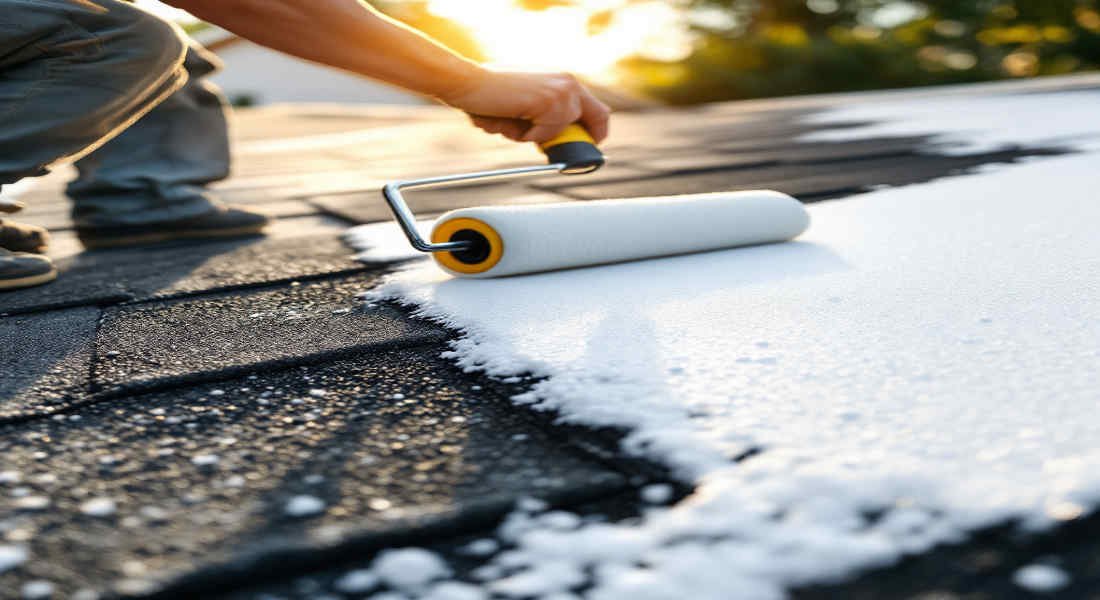
Here’s a list of the best roof sealers based on durability, user reviews, and professional opinions:
- Liquid Rubber Waterproof Sealant
- Pros: Versatile, eco-friendly, water-based, and safe for indoor/outdoor use.
- Cons: Requires multiple coats for full effectiveness.
- Rust-Oleum Sealers
- Pros: Superior UV, water, and chemical resistance.
- Cons: Limited use of certain roof materials.
- Loctite PL S30 Blackproof Sealant
- Pros: Professional-grade waterproofing, compatible with various roofs.
- Cons: It may require professional application.
- GacoFlex SF2000 SeamSeal
- Pros: Silicone-based, solvent-free, 50-year warranty.
- Cons: Higher price point.
- Skyguard Bond & Seal Mastic
- Pros: Multi-purpose, 50+ year lifespan, excellent for EPDM roofing.
- Cons: Limited to flat roof applications.
Each of these products has proven to deliver excellent results in extending roof longevity. Choose based on your roof type and needs.
How to Choose the Best Roof Sealer for Your Home
Selecting the right sealer requires careful consideration of several factors:
Key Factors to Consider
- Roof Type: Asphalt, metal, slate, or rubber roofing materials all have specific compatibility needs.
- Climate: Heavy rain, snow, or extreme heat will influence the type of sealer you need.
- Maintenance: Some sealers require reapplication more frequently than others.
- Budget: High-quality sealers may cost more but offer longer-lasting protection.
- Environmental Safety: Look for low-VOC or eco-friendly options for indoor safety.
Application Tips for Maximizing Roof Sealer Longevity
Proper application is key to maximizing the lifespan of your roof sealer. Follow these steps:
- Preparation: Clean the roof surface thoroughly to remove dirt, debris, and mold.
- Inspection: Check for cracks or damage and repair them before sealing.
- Application: Use a roller or spray, ensuring even coverage. Follow the product’s instructions carefully.
- Drying: Allow ample time for the sealant to cure before exposing it to weather.
- Maintenance: Inspect the roof annually and reapply sealant as needed.
You may also read (protect your home ice and water shield essentials).
